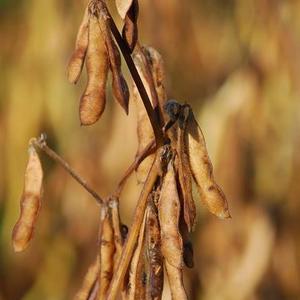Soy Innovation Campus to co-locate with new Minn. biodiesel plant

March 7, 2019
BY Ron Kotrba
The Minnesota Soybean Research & Promotion Council plans to co-locate its new Soy Innovation Campus with Epitome Energy LLC’s proposed 30 MMgy biodiesel production and soybean crush facility in Northwest Minnesota.
Earlier this year, Epitome Energy was awarded a $450,000 grant from the Minnesota Department of Transportation for new rail infrastructure at an industrial site in Crookston, Minnesota, which will facilitate transportation of soybeans, meal, oil, biodiesel and methanol to and from the site. The crush facility will be scaled to process 65,000 bushels of soybeans per day.
“The feasibility of this project depends on access to adequate rail infrastructure serving the site,” Epitome Energy wrote in its grant application to MNDOT. Regional short line operator Minnesota Northern Railroad wrote a letter to MNDOT in support of the Epitome Energy project late last year. Both MSR&PC and Otter Tail Power Co. have committed financial support to Epitome Energy’s project.
Advertisement
Advertisement
In addition to being co-located with Epitome Energy’s large-scale crush and biodiesel plant, MSR&PC’s Soy Innovation Campus will feature a specialty soybean extraction plant and specialty oil refining operation.
“The Soy Innovation Campus will be home to an ever-expanding network of classrooms, laboratories and private industries designed to create green-based products from coproducts produced in the four facilities,” said Tom Slunecka, CEO of the Minnesota Soybean Growers Association. “The small crush facility will be owned by a nonprofit. Its mission will be to operate the small crush and small oil refining facility, giving opportunities to projects that are in a holding position between benchtop research and full commercialization.”
Advertisement
Advertisement
Some of the product developments anticipated to come out of the Soy Innovation Campus are high-oleic soybeans; low-allergenicity soybeans; high-protein soybeans; biobased road sealants, paints and seal coat; and feed manufacturing.
Minnesota became the first state in the U.S. to require 20 percent biodiesel, beginning last spring. The mandate requires B20 in the warmer months of April through September, and B5 in the colder months. The biodiesel demand created from this unique mandate is roughly 110 MMgy. The regulation requires at least 50 percent of the biodiesel used to satisfy the mandate to come from instate production.
Minnesota currently has three biodiesel plants with cumulative nameplate capacities of 63 MMgy. Sources tell Biodiesel Magazine that the two largest plants—Minnesota Soybean Processors in Brewster and REG Albert Lea—are permitted for and capable of producing more than 40 MMgy each, despite their 30 MMgy nameplate capacities. A new 30 MMgy plant in Crookston would narrow the gap between instate biodiesel production and demand created from the higher mandate while generating jobs and much-needed local demand for the region’s soybeans.
Related Stories
The USDA significantly increased its estimate for 2025-’26 soybean oil use in biofuel production in its latest World Agricultural Supply and Demand Estimates report, released July 11. The outlook for soybean production was revised down.
U.S. fuel ethanol capacity fell slightly in April, while biodiesel and renewable diesel capacity held steady, according to data released by the U.S. EIA on June 30. Feedstock consumption was down when compared to the previous month.
The U.S. EPA on July 8 hosted virtual public hearing to gather input on the agency’s recently released proposed rule to set 2026 and 2027 RFS RVOs. Members of the biofuel industry were among those to offer testimony during the event.
The USDA’s Risk Management Agency is implementing multiple changes to the Camelina pilot insurance program for the 2026 and succeeding crop years. The changes will expand coverage options and provide greater flexibility for producers.
The USDA’s National Agricultural Statistics Service on June 30 released its annual Acreage report, estimating that 83.4 million acres of soybeans have been planted in the U.S. this year, down 4% when compared to 2024.
Upcoming Events










